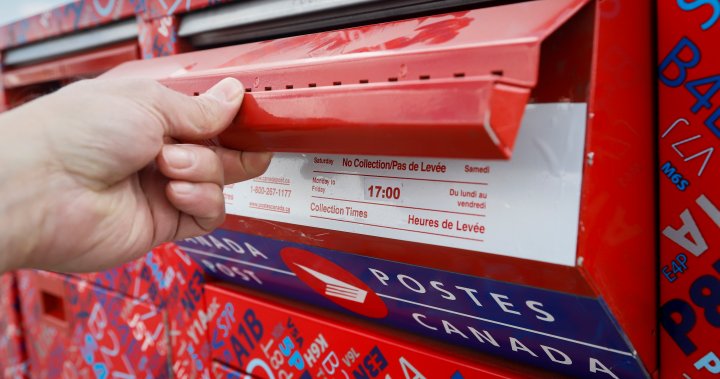The ongoing Canada Post strike, now exceeding a month in duration, has created a significant challenge for millions of Ontarians who rely on traditional paper billing for their utility services. With mail delivery suspended since November 14th, a considerable number of customers of major utility providers like Enbridge Gas, Hydro One, Hydro Ottawa, and Toronto Hydro face the risk of incurring late payment penalties and potential service disruptions if they fail to maintain their accounts in good standing. While these companies are actively encouraging customers to transition to electronic billing methods, a substantial portion of their customer base remains dependent on paper invoices, raising concerns about timely payment processing during the postal disruption.
Enbridge Gas, which serves a vast customer base of approximately 3.9 million Ontarians, reported that 30% of their customers still rely on paper billing. Despite efforts to promote online alternatives, the company has observed only a modest 2% increase in online registrations since the strike commenced. While Enbridge Gas has pledged to waive late fees “where appropriate,” the company emphasizes the importance of utilizing digital platforms to avoid potential penalties resulting from delayed payments. This underscores the challenge faced by both utility companies and customers in adapting to the disruption caused by the postal strike.
Hydro One, serving over 1.4 million customers across Ontario, revealed that nearly half of its clientele continues to depend on paper invoices. Acknowledging the disruption caused by the strike, Hydro One has taken steps to inform customers about their account balances through telephone updates and access to their online customer portal. However, the company maintains that late payment fees will still be applicable to outstanding balances. This reinforces the responsibility of customers to stay informed about their account status and ensure timely payments, despite the ongoing mail disruption.
Similarly, Toronto Hydro and Hydro Ottawa customers who have not yet transitioned to electronic billing face potential penalties for late payments. Toronto Hydro, with its 710,000 residential customers, reported that a significant 300,000 customers still rely on paper bills. Although the company has implemented additional payment options, such as drop boxes at two Toronto locations for cheque payments, late fees will still be levied for overdue payments. While Toronto Hydro has witnessed a surge in new registrations for paperless billing since the strike began, a considerable number of customers remain on traditional billing methods, highlighting the need for continued outreach and support to facilitate the transition to digital platforms.
Hydro Ottawa echoed similar observations, noting an increase in online billing requests, indicating that customers are adapting to the circumstances. For those facing challenges in transitioning to digital payment methods, both utility companies recommend direct communication to explore alternative payment arrangements or potential waivers of late fees. This underscores the importance of proactive communication between utility providers and customers to navigate the challenges posed by the postal disruption and minimize the impact on customer accounts.
As the Canada Post strike extends beyond a month, with the holiday season rapidly approaching, there appears to be little progress in negotiations between the involved parties. Despite the ongoing disruption, there is no indication of a resumption in federal mediation, which was paused in late November. Federal Labour Minister Steve MacKinnon continues to resist calls for government intervention, emphasizing the responsibility of the parties involved to reach a mutually agreeable resolution. The core issues driving the strike by over 55,000 postal workers include wages, job security, and the staffing of a proposed expansion into weekend delivery services. While a labour practice complaint filed by the Canadian Union of Postal Workers regarding layoffs during the strike has been resolved, the broader issues remain unresolved, prolonging the uncertainty surrounding the strike’s duration and its impact on essential services like utility billing.

